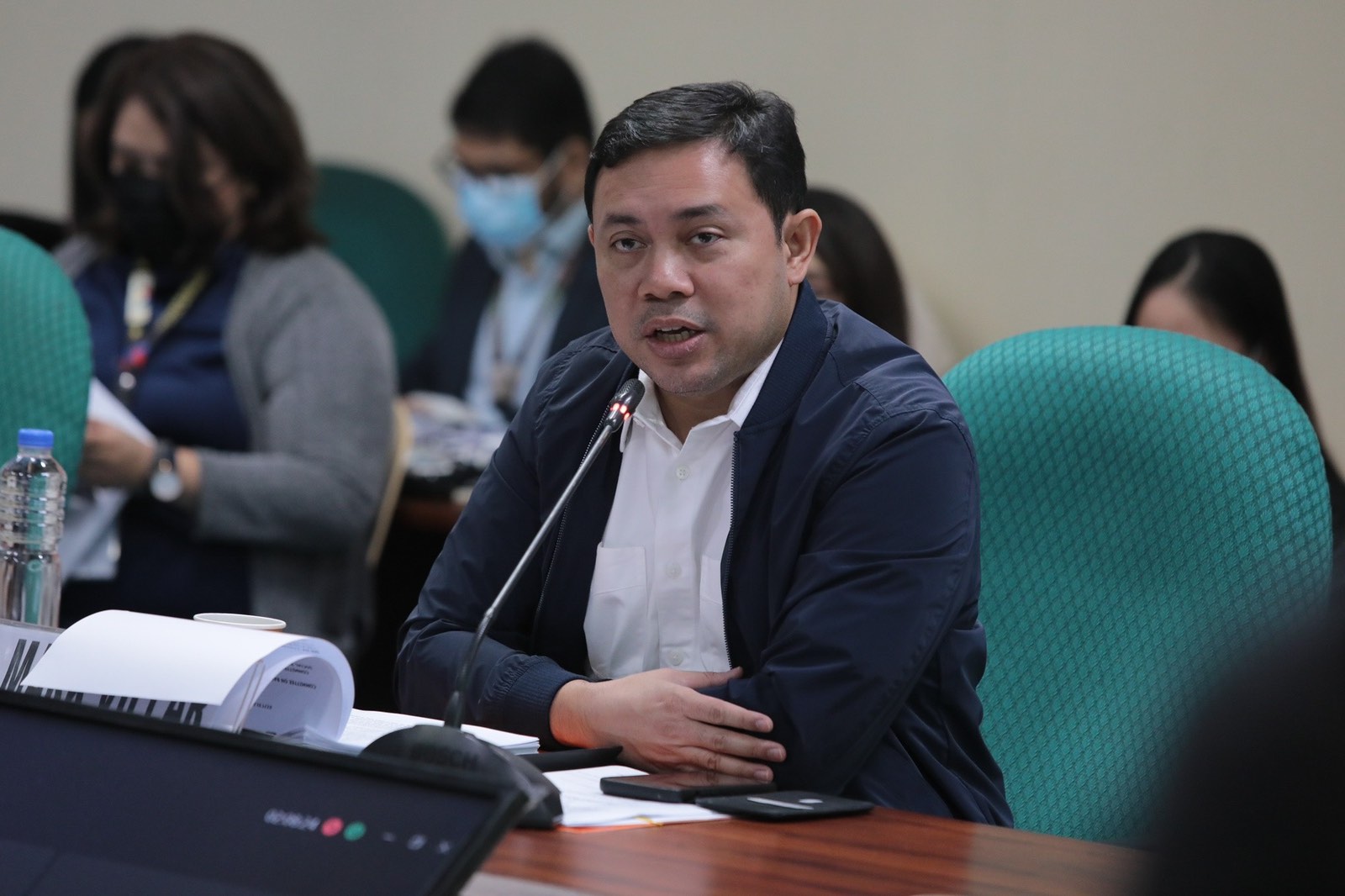Mark Villar pushes for AFASA bill: 'Scammers have no place in PH banks, financial institutions'
Senator Mark Villar, chairman of the Senate Committee on Banks, Financial Institutions and Currencies, pushed for the passage of the proposed Anti-Financial Account Scamming Act (AFASA) to ensure that no scammers will be able to defraud Filipino banking consumers in the long run.

Sen. Mark Villar (Senate PRIB Photo)
House Bill No. 7393, or the “Anti-Financial Scamming Act” and Senate Bill 2039, or the “Anti-Mule and Financial Fraud Act of2023” are now being discussed by his panel as the Senate seeks to put a stop to the proliferation of bank-related scams, unauthorized online lending schemes and other fraudulent financial activities.
According to Villar, the rising cases of online scams victimizing Filipinos are extremely concerning. Citing data from Kaspersky Security Network, the senator said cases of financial phishing attempts in the Philippines from February to April 2022 were the highest in Southeast Asia.
He said passage of the Anti-Financial Account Scamming Act or AFASA into law will evidently deal with cases of online fraud as the measure aims to provide a regulatory framework that penalizes scammers and entails safeguard measures to protect Filipinos and their bank accounts.
“The number of phishing attacks in the Philippines during the first half of 2022 already surpassed the number of attacks in the whole year of 2021. In that period, over 1.8 million attacks have been detected compared to 1.34 million attacks in 2021,” Villar said during a Senate hearing on Monday, September 18.
Villar noted that the government currently lacks a regulatory framework that penalizes these online scammers.
"Because of the lack of a regulatory framework that penalizes these scammers, there are and there will be more victims in the foreseeable future. Even as we speak, there are individuals being victimized by these scammers who seize every vulnerable opportunity available to them,” he said.
“We cannot watch from the sidelines as scammers take advantage of our people,” he added.
Thus, he said, enacting the AFASA bill into law will help banks and financial institutions regain the public’s trust in the Philippine banking sector.
"Being a key component of our economy, our banking and financial institutions must remain strong and responsive to this persistent threat,” he said.
“We should not give these scammers an avenue and more time to victimize our people. We must act now. Take a stand with us in protecting our banks, economy, and the Filipinos,” he said.
The Senate panel eventually conducted half of its hearing in an executive session due to the confidentiality and sensitivity of the issues and information discussed.
But GCash, a leading e-wallet platform in the country, in a statement, announced their support for the passage of the AFASA bill as well as the anti-mule bill.
“If urgently passed and implemented, the measures penalizing money mules and scammers canfurther accelerate the country’s digitalization and financial inclusion agenda,” said Ren-Ren Reyes, president and CEO of G-Xchange, Inc.
In their statement, GCash has been proactively blocking suspicious accounts to keep “bad actors” from victimizing customers. From January 2022 to June 2023, GCash said it has already barred 4 million accounts from accessing the platform for fraud.
GCash is also working in close coordination with the Philippine National Police Anti-Cybercrime Group (PNP-ACG), the Cybercrime Investigation and Coordinating Center (CICC),and the National Bureau of Investigation (NBI) in their anti-cybercrime operations.
“We look forward to collaborating with our legislators and other stakeholders for the protection of the Filipino people against evolving threats in this increasingly more digital world,” Reyes said.